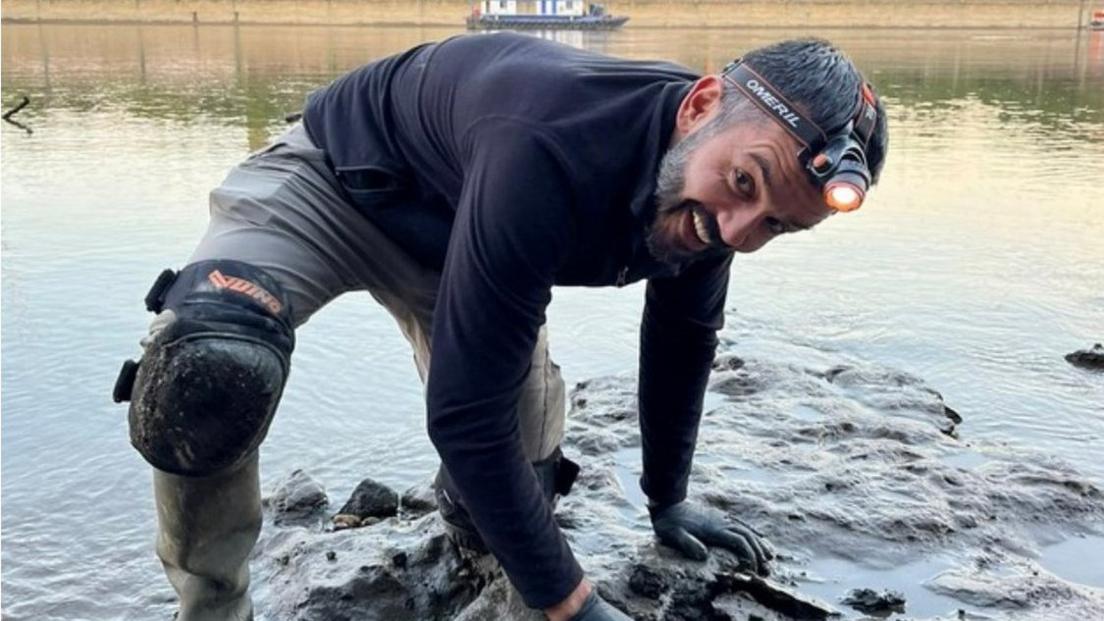'London's lost treasures' in mudlarking exhibition
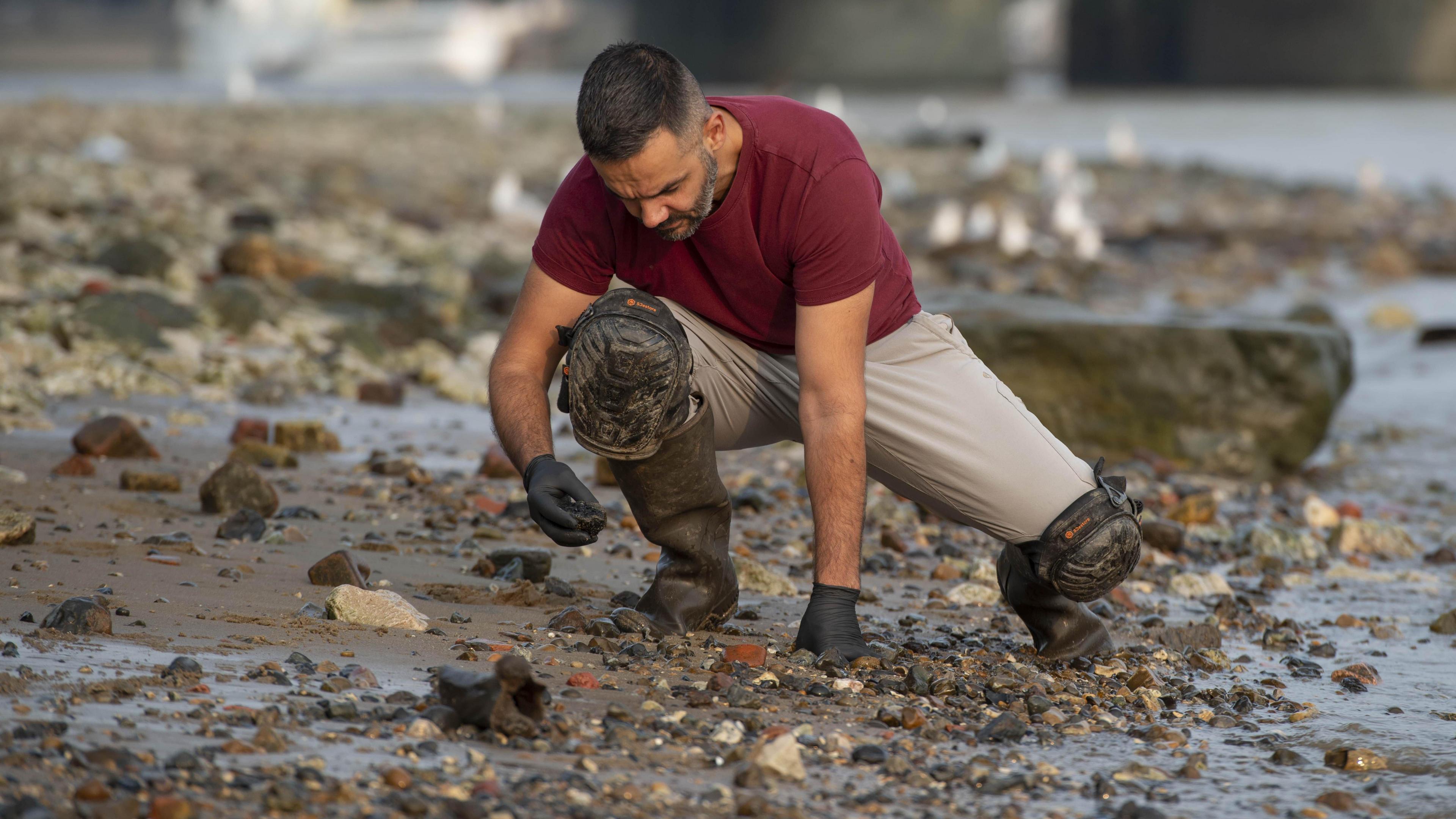
A new exhibition will showcase "London's lost treasures" found by mudlarks
- Published
A Tudor wool knitted hat found on the bank of the River Thames is going on display for the first time as part of a new mudlarking exhibition.
London Museum Docklands will showcase "London's lost treasures" from April 2025, featuring finds from the Thames foreshore.
Other objects on display will include a Medieval gold ring, an elaborately decorated Viking era dagger and a pair of false teeth from the 18th Century.
Mudlarking is a centuries-old London tradition, which sees people searching the Thames riverbed for historical treasures.
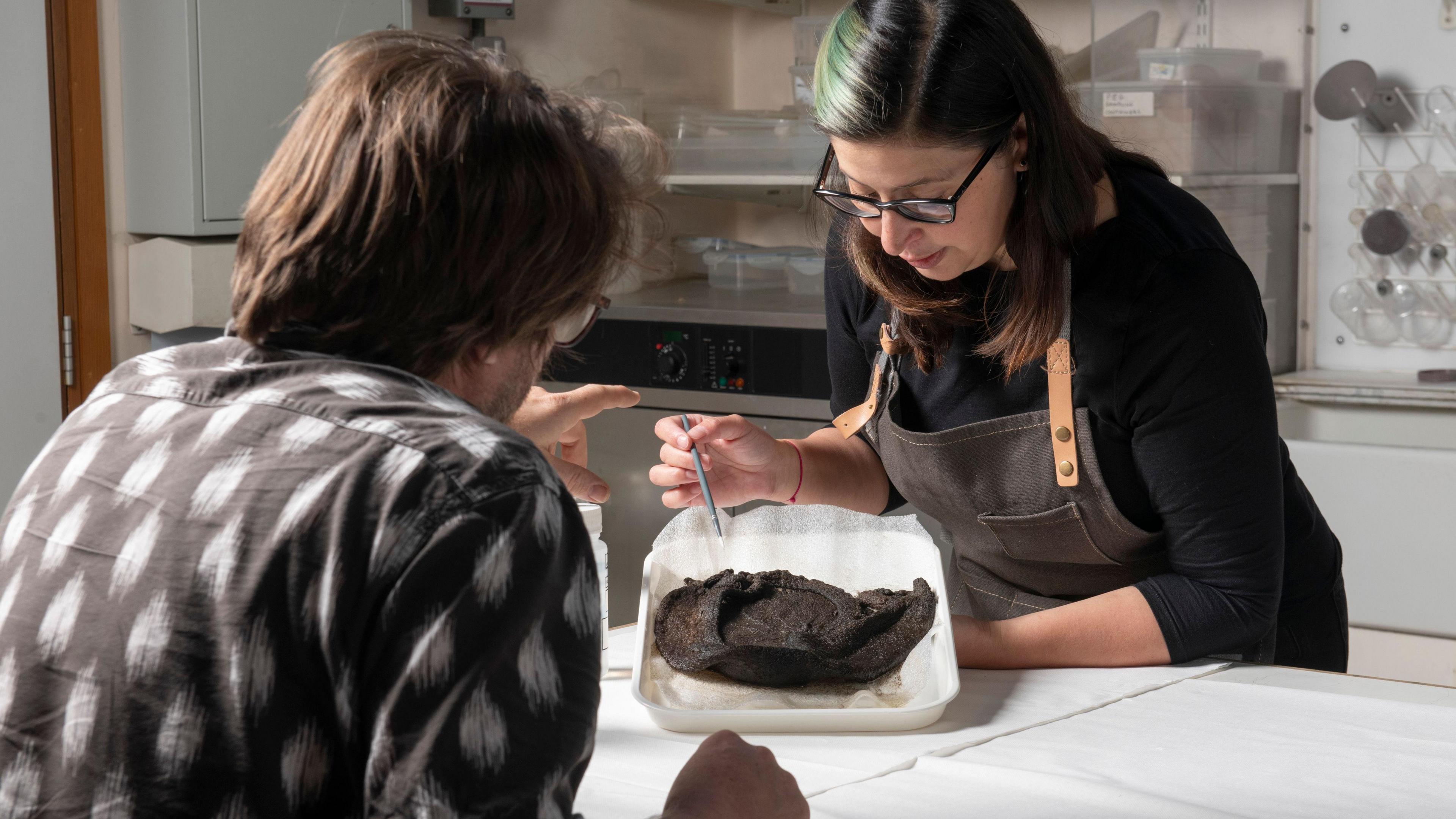
The Tudor wool knitted hat was found preserved on the bank of the River Thames
'Unbelievably rich selection'
Kate Sumnall, curator at London Museum, said the exhibition would explore "the stories of generations of people who have visited the city or called it home".
“We are lucky in London to have this amazing tidal river environment that has preserved so much of our past," Ms Sumnall said.
"It is the longest archaeological site in London and here we find an unbelievably rich selection of finds.
"Thanks to the dedication and expertise of today’s mudlarks, we are constantly uncovering new objects that inform our understanding of history."
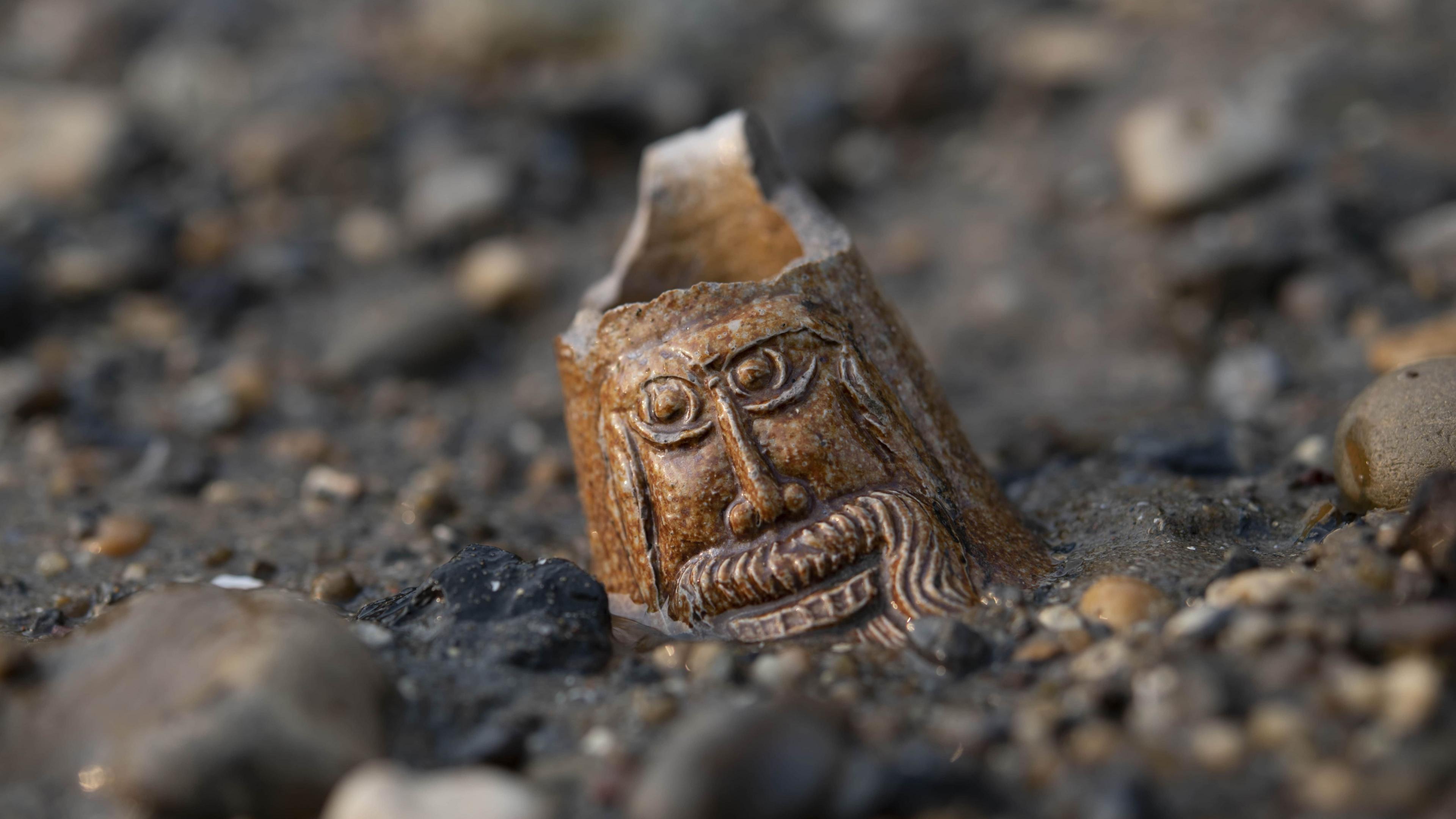
A Bartmann bottle from the 1500s to 1600s is found on the bank of the river
The Tudor knitted cap going on display was discovered on the foreshore 500 years after it was lost.
It was inspired by similar velvet designs worn by the wealthy at the time.
The cap will sit alongside other items including a medieval gold ring inscribed with the message: "For love I am given" and an ancient Viking era dagger personalised with the name of its owner, Osmund.
Other objects range from clay pipes, which Ms Sumnall described as "the disposable vapes of their day" and 18th Century false teeth.
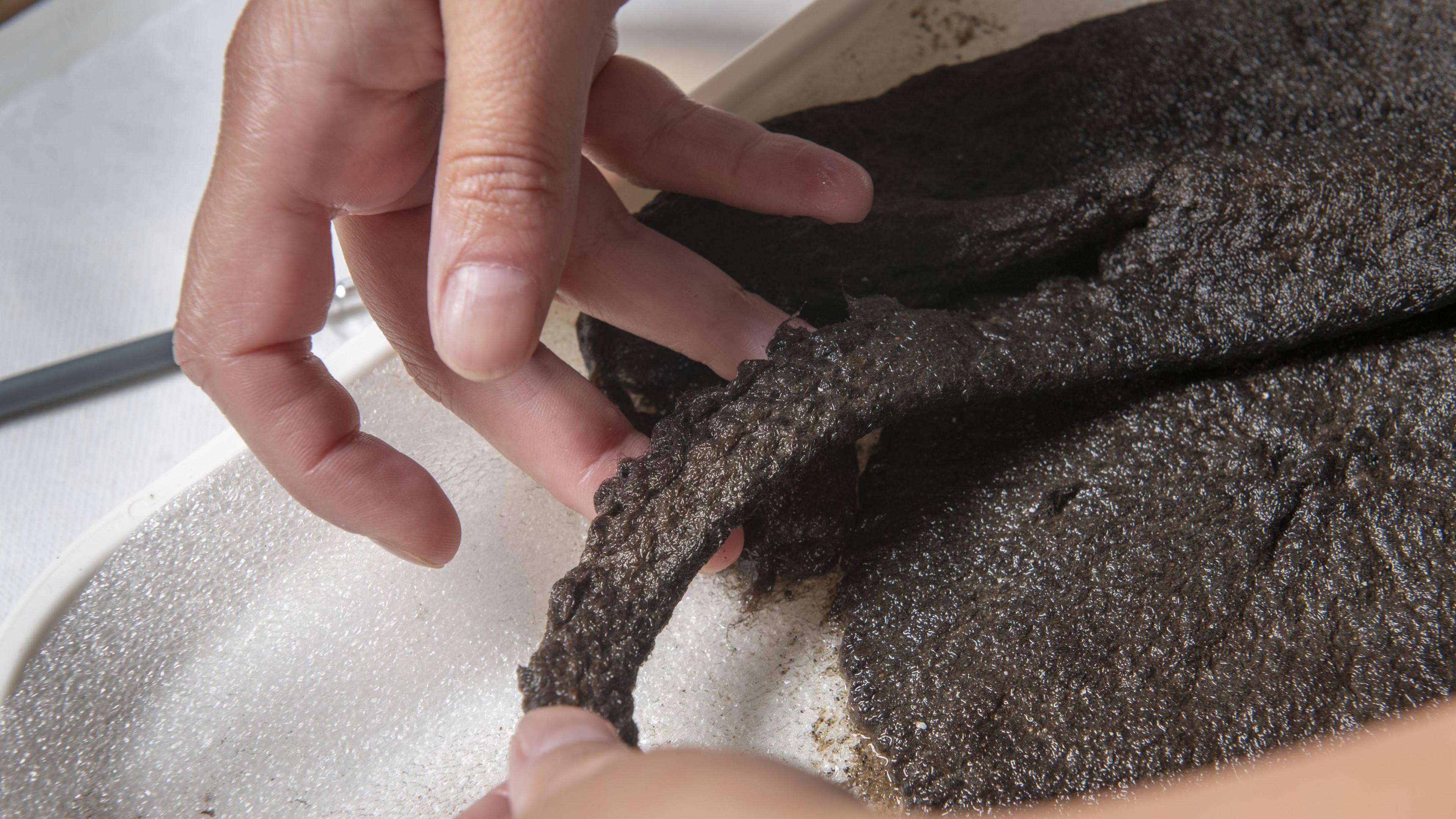
The knitted cap was a more affordable version of velvet caps worn by the wealthy
The museum said it aimed to recreate an experiential foreshore studded with mudlarked objects.
There would also be a behind-the-scenes glimpse at how finds were recorded and researched at the museum, as well as insights from mudlarks about how they investigate and curate their collections.
Early records of mudlarking date back to the mid-1800s when London’s poorest communities searched the foreshore for bits of metals, rope and coal to make their living.
Today, licensed mudlarks explore the wet clay banks of the Thames to find preserved historical treasures revealed at low tide.
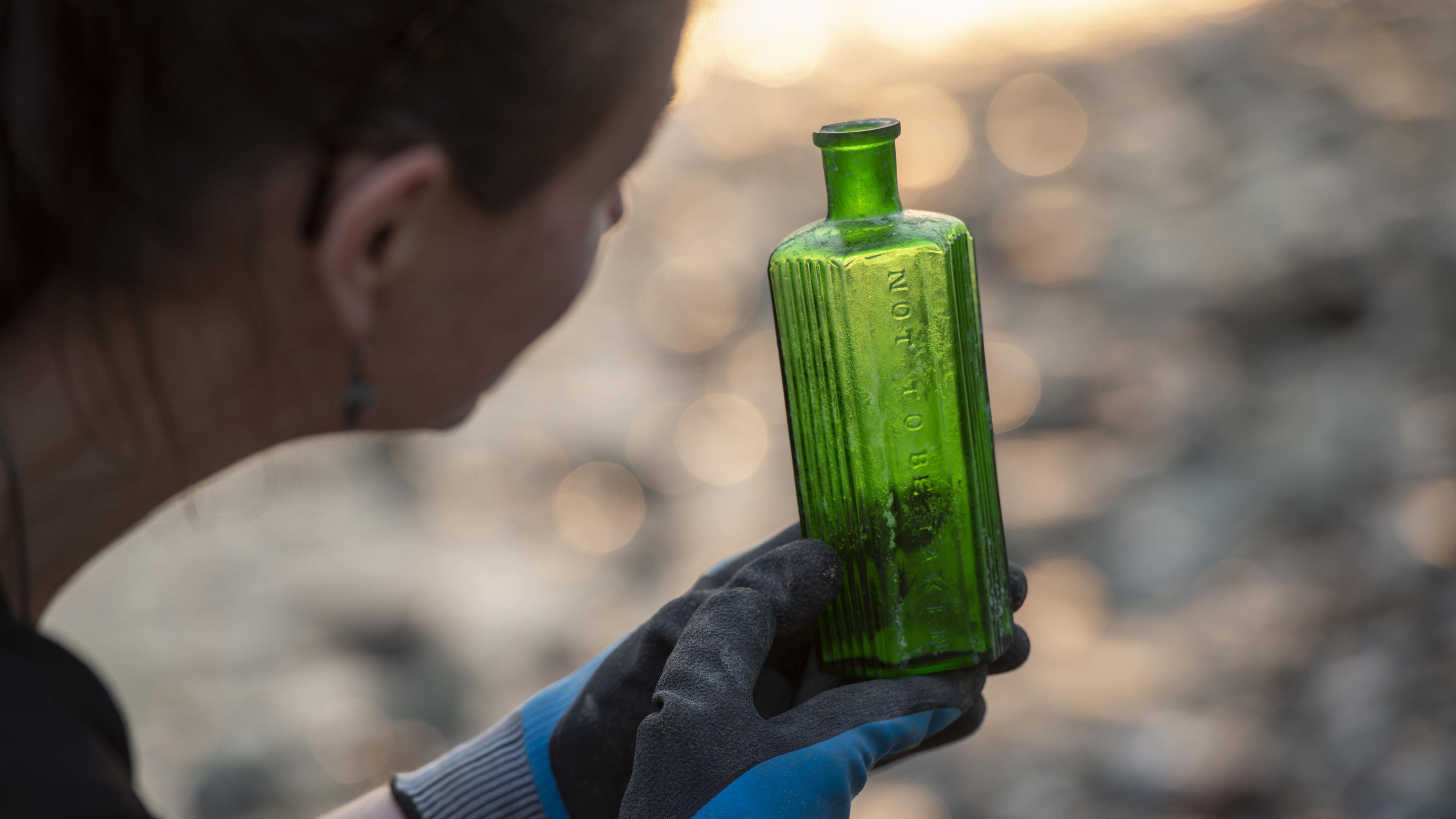
Mudlarks will also share their insights in the new exhibition
The hobby has grown in popularity in recent years, with the Port of London Authority (PLA) noting a significant increase in applications for licenses, particularly since 2020.
The museum acquires a small number of mudlarking finds per year. All items thought to be 300 years old or more must be reported to the Finds Liaison Officer at London Museum.
Secrets of the Thames: Mudlarking London’s lost treasures will run from 4 April 2025 to 1 March 2026.
Listen to the best of BBC Radio London on Sounds and follow BBC London on Facebook, external, X, external and Instagram, external. Send your story ideas to hello.bbclondon@bbc.co.uk, external
Related topics
- Published29 August 2024
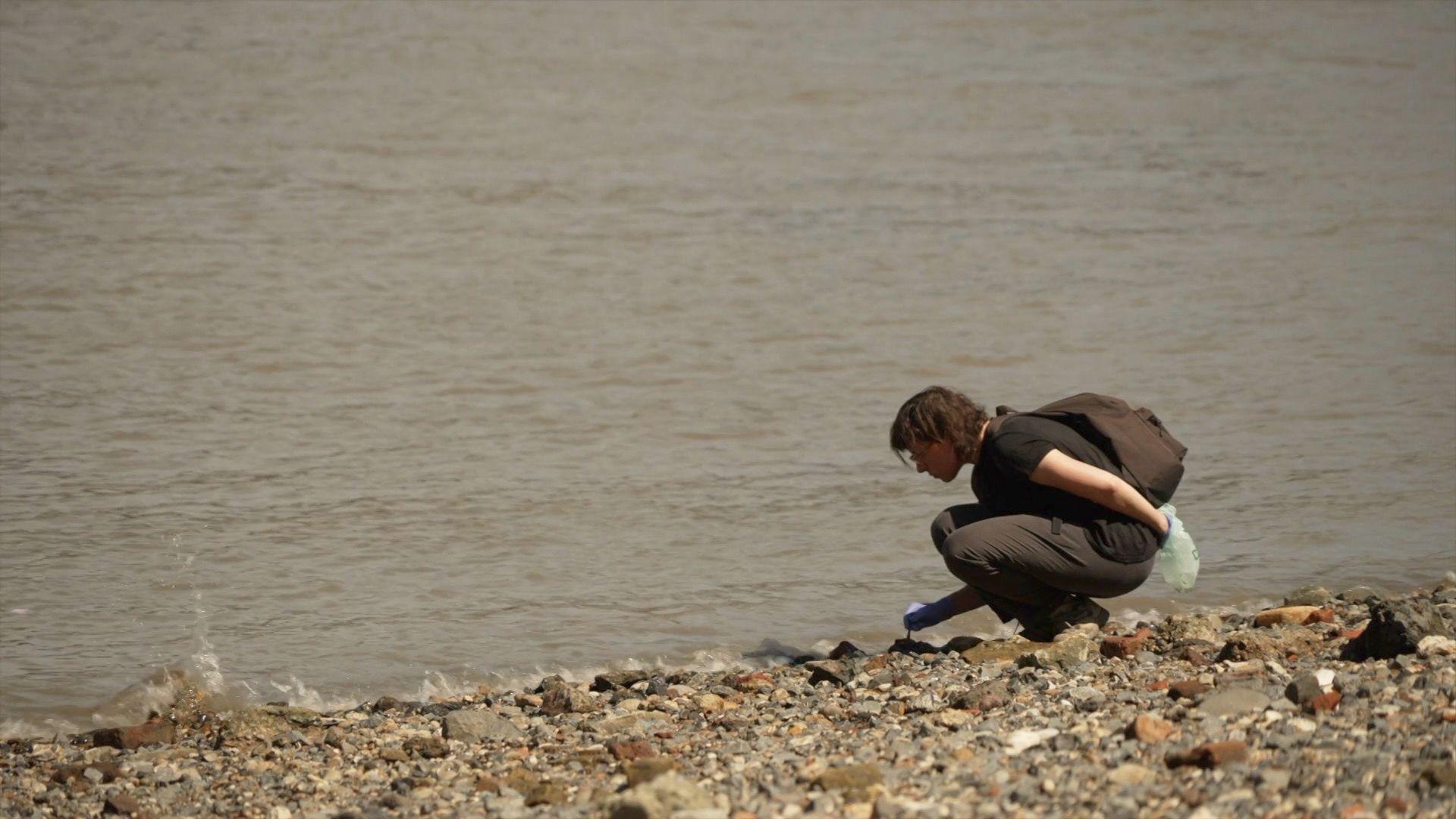
- Published27 February 2023
